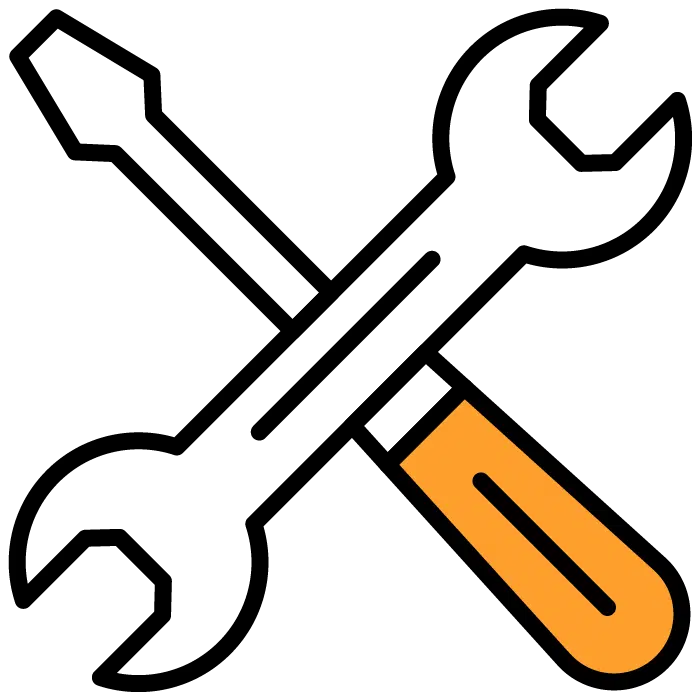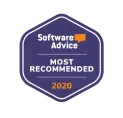Reference checking can be daunting. The right questions cut to the heart, helping you find the talented, dedicated person you’re hoping for.
The wrong questions can lead to superficially reassuring answers that disguise big issues. You could end up wasting your time or making the wrong hire.
We’ve used the reference checking questions with over 50,000 real job candidates. We know they work — and how to make them work. The best part? You’re about to get them, free and clear.
The Hire Talent makes reference checking easy. Use our Reference Hunter technology to create custom templates and send them out automatically. Get candid feedback quickly, weed out bad candidates, and make your next great hire.
What Is a Reference Check?
A reference check is the process of interviewing a candidate’s references to learn whether they would be a good employee. A reference check works best when the references are past supervisors, and when you do it as early in the hiring process as possible, asking specifically about performance.
Reference checks are best carried out through a phone call, so you can talk off the record and get candid responses. By carrying out a reference check, you can make sure your candidate has the experience and skills they say they have.
Best Reference Check Questions to Ask
The best way to check references is to contact the candidate’s direct supervisor or line manager. This person will be best positioned to talk about the candidate’s skills and experience, along with letting you know how they fit into their team.
Here are 72 reference check questions to ask about your candidates:
Reference Check Questions to Ask Supervisors
Why ask past supervisors? Because they’re the only ones who can tell you if the candidate was good to work with or not. If you ask the questions below, you’ll know from even guarded answers if this person is worth hiring.
- What do you do at the company?
- What was your experience working with this candidate?
- In what capacity did you manage them?
- Were there others on the team?
- How many employees work at your company/facility?
- Were other managers involved?
- What was the candidate’s role?
- What were their job responsibilities?
- On a scale of 1-10, how would you rate this candidate’s overall performance? Important!
- What could they have done to get a higher score? Important!
- Would you rehire this person?
- How did you measure their performance?
- How did they perform compared to others?
- Did they exceed expectations?
- How well did they give and receive feedback?
- How would you describe your relationship with the candidate?
- Were there any problems with absences or tardiness?
- Was this employee a team player?
- What are their best qualities?
- Did their technical or soft skills develop over time?
- How well did they [select a job responsibility or skill cited by the candidate]?
- Do you think they would be able to [describe an important aspect of your open position]?
We designed these vital questions to make sure that (a) the reference is credible and objective and (b) the candidate is the high-performer you want.
We’ve included questions that dig into potential problems too, like persistent absence or tardiness. If you ask these questions, you won’t be in for any nasty surprises when you make a new hire.
How to Use These Reference Check Questions
To get the most from the questions above:
- Contact the candidate’s direct supervisor. Friends, family, and co-workers are all biased.
- Build rapport with the supervisor when you call. Reassure them that you’ll keep everything confidential.
- Verify the reference’s identity: their name, title, and what they do at the company. This ensures that they’re a credible reference, not just a friend of the candidate.
- Always ask the two-part important question (labeled above). This question gives you a clear yardstick to gauge performance — and gives you insights into how to get the best from them.
There’s a specific way to do this right. See our article: Reference Checking: How HR Experts Do It
Or — let us do it for you with our Reference Hunter tool.
More Reference Check Questions
Checking references with supervisors gives you the best insights into your candidates’ likely future job performance. Supervisors can speak directly to how that candidate performed when working for them — giving you clear and grounded feedback.
While the questions above are the best, in some cases you may want additional questions to ask references. You might want to go further with the supervisor, or you may need to contact a coworker or even a direct report of the candidate.
So — if you want to dig a little deeper, we’ve got lots more great reference questions that you can use.
Introductory Reference Check Questions
These questions are straightforward ways to start a conversation with anyone who’s worked with your candidate in the past, even if they didn’t know them well.
- Can you please tell me your name, title, and how you are connected to the candidate?
- How long have you known the candidate, and in what capacity have you worked with or supervised them?
- Can you describe the candidate's work performance and attitude during their time with your organization?
- How would you rate the candidate's reliability and work ethic?
- Can you tell me about a project or task the candidate worked on while employed with your organization, and how they approached it?
- How would you describe the candidate's communication skills and ability to work collaboratively with others?
- Can you give an example of a time when the candidate had to handle a difficult situation or challenge in the workplace?
- How did the candidate handle feedback and constructive criticism during their time with your organization?
- Can you describe the candidate's level of professionalism and how they interacted with coworkers and supervisors?
- Based on your experience working with the candidate, would you recommend them for the position they have applied for?
These questions are effective because they dig into facts, ask about key areas of performance and personality, and help you get a clear, general picture of what the candidate’s work is like.
Reference Check Questions to Ask Co-Workers
These questions are ideal if you’ve been given one of your candidate’s peers as a reference, or someone who isn’t their direct supervisor.
- Can you describe your working relationship with the candidate? What was your role, and how did you interact with the candidate in the workplace?
- How would you describe the candidate's communication skills? Were they able to effectively communicate with coworkers, supervisors, and customers/clients?
- Can you give an example of a time when the candidate had to work on a project or task with you? How did they approach the project, and what was the outcome?
- How would you rate the candidate's teamwork and collaboration skills? Were they able to work effectively with others, resolve conflicts, and contribute to a positive team dynamic?
- Can you describe the candidate's work style and approach to problem-solving? Were they able to approach tasks and projects with creativity and efficiency?
- How did the candidate handle feedback and constructive criticism from coworkers and supervisors? Were they open to feedback and willing to make changes to their work as necessary?
- Can you give an example of a time when the candidate had to handle a difficult situation or task while working with you? How did they handle the situation, and what was the outcome?
- How would you rate the candidate's time management and organizational skills? Were they able to prioritize tasks effectively and meet deadlines?
- Can you describe the candidate's level of professionalism and work ethic? Were they reliable, punctual, and committed to their work?
- Based on your experience working with the candidate, would you recommend them for the position they have applied for? Why or why not?
You’ll find these questions are effective because they ask about specific examples and dig into key areas like work ethic and openness to feedback.
Reference Check Questions to Ask Reports
In some situations, you might be approaching your candidate’s direct reports for a reference — and that’s what these questions are designed for.
- Can you describe your working relationship with the candidate? What was your role, and how did you interact with the candidate in the workplace?
- How would you describe the candidate's management style and leadership abilities? Were they able to effectively lead and motivate their team?
- Can you give an example of a time when the candidate had to manage a difficult situation or challenge with their team? How did they handle the situation, and what was the outcome?
- How did the candidate handle feedback and constructive criticism from their direct reports? Were they open to feedback and willing to make changes to their management style as necessary?
- How would you rate the candidate's communication skills and ability to work collaboratively with their team?
- Can you give an example of a time when the candidate had to make a difficult decision as a manager? How did they approach the decision-making process, and what was the outcome?
- How would you rate the candidate's ability to provide direction and support to their direct reports? Were they able to effectively delegate tasks and responsibilities?
- Can you describe the candidate's approach to performance management and employee development? Were they able to provide constructive feedback and opportunities for growth?
- How would you rate the candidate's ability to prioritize tasks and manage their time effectively as a manager?
- Based on your experience working with the candidate, would you recommend them for a management or leadership role in their new organization? Why or why not?
These questions focus on your candidate’s management style and leadership potential, making them highly effective in making the right hire for critical leadership positions in your company.
Reference Check Questions Related to Performance
Perhaps you’ve had performance-related issues with new hires in the past. These reference questions will help you avoid that in the future.
- How would you rate the candidate's overall job performance during their time with your organization?
- Can you give an example of a specific project or task that the candidate worked on while employed with your organization? How did they approach the project, and what was the outcome?
- How would you describe the candidate's ability to meet deadlines and prioritize tasks effectively?
- Can you provide any examples of the candidate going above and beyond what was expected of them in their role?
- Can you describe the candidate's ability to work under pressure and handle stressful situations in the workplace?
- How would you rate the candidate's attention to detail and ability to produce high-quality work?
- Can you describe any significant accomplishments or contributions that the candidate made during their time with your organization?
- How did the candidate handle feedback and constructive criticism during their time with your organization? Were they open to feedback and willing to make changes to their work as necessary?
- How would you rate the candidate's ability to adapt to changing circumstances or unexpected challenges in the workplace?
- Based on your experience working with the candidate, do you believe they would be a strong performer in the position they have applied for? Why or why not?
These questions ask about specific examples and are effective in helping you choose a hire who’s going to accomplish at a high level, going above and beyond in their role.
You should also test your candidates’ skills to verify performance. See our article: Talent Assessment for Employers: How to Do it Right
Reference Check Questions Related to Values
A candidate with strong technical or hard skills may be lacking in the values that are hugely important to your organization, so use these questions to dig into value-related areas.
- Can you describe the candidate's personal and professional values as you observed them during their time with your organization?
- How did the candidate demonstrate their commitment to teamwork and collaboration in the workplace?
- Can you describe any examples of the candidate demonstrating integrity and ethical behavior in the workplace?
- How would you describe the candidate's approach to work-life balance and maintaining a healthy work environment?
- Can you describe the candidate's level of respect and professionalism in their interactions with coworkers, supervisors, and customers/clients?
- How would you rate the candidate's ability to take ownership of their work and hold themselves accountable for their actions?
- Can you describe any examples of the candidate demonstrating a commitment to personal and professional development?
- How would you describe the candidate's approach to problem-solving and decision-making in the workplace?
- Can you describe any examples of the candidate demonstrating a commitment to diversity and inclusion in the workplace?
- Based on your experience working with the candidate, do you believe they would be a good fit for the culture and values of the organization they have applied to work for? Why or why not?
Many of these questions are focused on specific examples, verifying that your new hire truly lives out their values in the workplace.
How to Make Your Own Custom Reference Check Questions
If you want even more reference check questions, you can come up with your own using ChatGPT. Think about what you most want to know about candidates. For instance, you might consider asking questions that establish whether the candidate will likely be a good cultural fit in your organization.
Here’s a sample reference check questions template that you can use as a starting point. Feel free to change the number of questions you request, and any other details you want.
Please write 3 reference check questions to ask a candidate's former supervisor. The questions should ask about the candidate's accomplishments, attitude, and ability to work under pressure.
Here’s what ChatGPT came up with:
- Can you describe some of the candidate's key accomplishments during their time with your organization? How did these achievements contribute to the success of the team or company?
- How would you describe the candidate's attitude and demeanor while working with their colleagues and supervisors? Did they demonstrate a positive, collaborative, and solution-oriented approach to their work?
- Can you provide an example of a time when the candidate was under pressure to meet a deadline or manage a challenging project? How did they handle this situation, and what were the outcomes of their efforts?
What Questions Can You Not Ask in a Reference Check?
There are some questions you should never ask in a reference check relating to protected characteristics such as race, color, religion, sex, gender identity, pregnancy, disability, and more. Asking these questions can create serious legal problems and could lead to a candidate suing your company.
Essentially, any question that you can’t ask in an interview is one you also can’t ask in a reference check, as you shouldn’t take the answer into consideration when deciding whether or not to make a job offer. You can’t ask a candidate whether they’re married, for instance, so you shouldn’t ask their reference to tell you this information.
Here are some examples of what you must not ask when checking references:
- What is the candidate's age, birth date, or age range?
- Is the candidate married or in a relationship? Do they have children?
- What is the candidate's race, ethnicity, or national origin?
- What is the candidate's religion or religious affiliation?
- What is the candidate's sexual orientation or gender identity?
- Has the candidate ever filed a workers' compensation claim or been injured on the job?
- Has the candidate ever been arrested or convicted of a crime? (Note: This question may be legal in certain situations, such as when the candidate will be working with vulnerable populations.)
- Has the candidate ever had a disability or medical condition? (Note: This question may be legal in certain situations, such as when the candidate will need accommodations to perform the job.)
- Does the candidate have any outstanding debt or financial issues?
- Can you provide any information about the candidate's political affiliations or activities?
Why Perform a Reference Check?
It’s important to perform a reference check to make sure the candidate is a great fit for your role and organization. Ask about their attitude, performance, and values. But you’ll only get quality answers if you talk to their direct supervisors. Talking to friends, family, or coworkers is useless.
When Should You Conduct a Reference Check?
It usually makes sense to conduct reference checks after selecting your final candidate and before making a formal job offer. Some companies do this at an earlier stage of the hiring process. However, you won’t normally contact references before carrying out at least the first round of interviews.
Summary
If you want to hire the right person, you need to treat reference checks as a key part of the hiring process.
Asking the right questions means you can find out exactly how a candidate is likely to perform at your company. The questions above dig into your candidate’s past performance and behaviors, helping you make the right decision.
















